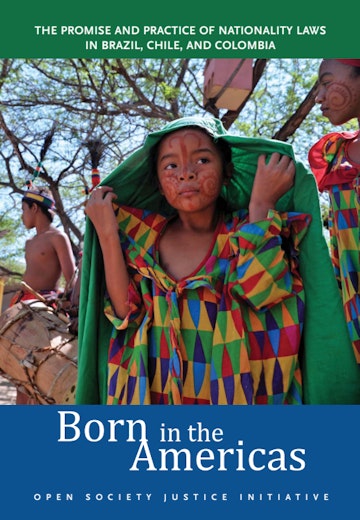Claude Reyes v. Chile
Democracy Demands "Maximum Disclosure" of Information
Fundacion Terram is an environmental NGO that filed a request for information with the government of Chile about a major logging contract. The Supreme Court denied the request. That denial was challenged before the Inter-American Court of Human Rights, which held that Article 13 of the American Convention on Human Rights guaranteed the right to such information. (Keywords: Access to Information - NGOs)
Facts
In May 1998, members of the Terram Foundation, a Chilean environmental NGO, filed a request for information with the Chilean Foreign Investment Committee regarding a major logging undertaking, known as the Condor River project. Although the committee was required by law to vet and approve investors and gather relevant information, the requests were ignored and subsequent appeals by the victims were dismissed as “manifestly ill-founded,” in the words of the Chilean Supreme Court on July 31, 1998.
In December 1998, a number of South American rights groups filed a petition with the Inter-American Commission on behalf of the requestors. This was the first case before the commission involving the right of public access to state-held information.
The case has also had an important impact within Chile, where the departing government of President Lagos repealed a significant number of secrecy regulations and his successor, President Michele Bachelet, was able to secure adopted of a full-fledged access to information law, which entered into effect on April 20, 2009.
In March 2005, the Inter-American Commission decided in favor of the Applicants, recognizing a general right of access to government information under Article 13 of the American Convention. It also concluded that Chile’s Freedom of Information legislation falls short of Article 13 requirements.
In July 2005, following Chile’s failure to comply with the commission’s Article 50 report, the commission referred the case to the Inter-American Court.
Open Society Justice Initiative Involvement
The Open Society Justice Initiative, joined by four other groups, filed amicus curiae briefs in the case with both the commission and the court. Excerpts relating to Chile from Transparency and Silence, a Justice Initiative survey on governmental handling of information requests, were formally introduced as evidence by the applicants.
Arguments
Access to Information. The Justice Initiative argued that the “freedom to seek, receive and impart information and ideas” guaranteed by Article 13 of the American Convention includes a general right to access state-held information.
Exercise of the Right. Chile had not complied with its Article 1 and 2 obligations under the Convention to ensure the free and full exercise of that right within its jurisdiction.
Legal Basis. The denial of the requested information had no basis in law and amounted to a violation of the victims’ rights under Article 13.
The court affirmed the commission’s decision in a landmark September 2006 ruling, becoming the first international tribunal to recognize a basic right of access to government information as an element of the right to freedom of expression.
The court held that any restrictions on the right of access should comply with the requirements of Article 13.2 of the convention, the presumption being that all state-held information should be public, subject to limited exceptions. States are required to adopt a legal framework that gives effect to the right of access, and to reform secrecy laws and practices. The court also ordered Chile to train public officials on the rules and standards that govern public access to information.
On May 2, 2008, the court adopted a resolution on Chile’s compliance with the judgment. It found that the state had complied with its obligation to provide the applicants with the requested information and partly with the obligation to provide full reparation for the violation of their rights. The court decided to continue to supervise the state’s compliance with the court’s order to bring its laws and practices fully in compliance with the convention as well as to train its administration to properly handle requests for access.
Law No 20.285 enters into force.
President Michelle Bachelet signs Law No. 20.285 on “Transparency of the Public Service and Access to Information of State Administration”.
Court adopts resolution on Chile’s compliance with the judgment.
Inter-American Court delivers judgment for the applicants.
Inter-American Commission refers the case to the Inter American Court.
Inter-American Commission finds for the applicants. Government fails to comply.
Petition filed to the Inter-American Commission on Human Rights
Supreme Court of Chile rejects the request.
Request for information filed by Fundacion Terram.
Related Cases
Related Work
Born in the Americas: The Promise and Practice of Nationality Laws in Brazil, Chile, and Colombia
This examination of citizenship regimes in Brazil, Chile and Colombia finds weaknesses that create the risk of statelessness.

Case Watch: Protecting Sexual Orientation Under Human Rights Mechanisms
Recent decisions from the top American and European human rights courts affirmed that sexual orientation and gender identity are protected categories under international law.
Case Watch: A Window on the Inter-American Court of Human Rights
It might not sound like exciting reading, but the 2010 annual report of the Inter-American Court of Human Rights presents an important resource for all those who are interested in human rights.